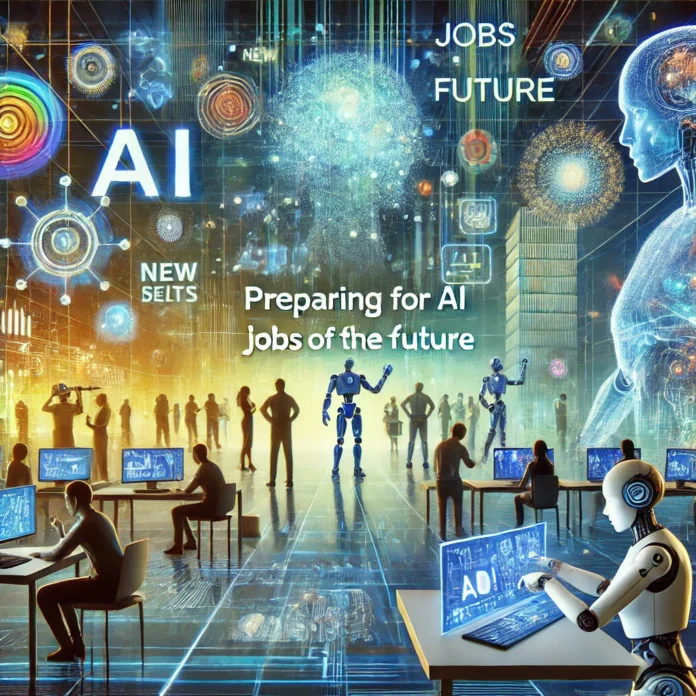The rapid advancement of Artificial Intelligence (AI) is reshaping industries, automating tasks, and creating entirely new categories of work. While fears of job displacement due to automation are valid, AI is also generating opportunities for roles that were unimaginable a decade ago. Preparing for this evolving workforce requires individuals, educators, and policymakers to anticipate changes, foster adaptability, and emphasize skills that align with emerging trends.
The Changing Nature of Work
AI is automating routine and repetitive tasks, enabling workers to focus on more complex and creative responsibilities. At the same time, new roles are emerging in industries where AI plays a central role.
1. Jobs Created by AI
AI is generating demand for roles that bridge the gap between humans and machines. Some examples include:
- AI Trainers: Professionals who help train AI systems by providing labeled data and refining models.
- Ethics Consultants: Experts who ensure AI applications adhere to ethical guidelines, addressing issues like bias, fairness, and accountability.
- Automation Strategists: Specialists who identify opportunities to integrate AI into workflows while optimizing human-machine collaboration.
2. Transformation of Existing Roles
AI is enhancing traditional jobs by automating time-consuming tasks, enabling workers to focus on higher-value activities. For example:
- In healthcare, AI assists doctors in diagnosing diseases and analyzing medical data, allowing them to concentrate on patient care.
- In marketing, AI automates data analysis, enabling marketers to design more personalized and impactful campaigns.
Skills for the AI-Driven Workforce
Adapting to an AI-powered economy requires a shift in the skills workers prioritize.
1. Technical Skills
Proficiency in AI-related technologies, such as machine learning, data analysis, and programming, will be essential for many roles. Learning platforms like Coursera and edX offer accessible training in these areas.
2. Creativity and Problem-Solving
As machines handle routine tasks, human creativity becomes a key differentiator. Skills in innovative thinking, design, and strategic planning will be invaluable.
3. Emotional Intelligence and Adaptability
AI cannot replicate human empathy, emotional intelligence, or interpersonal skills. Jobs that require managing teams, counseling, or building relationships will continue to rely heavily on these qualities.
The Role of Education and Training
Preparing for the jobs of the future demands a transformation in education and workforce training.
- Lifelong Learning: Workers must embrace continuous education to stay updated on technological advancements.
- AI Literacy: Schools and colleges should integrate AI fundamentals into curriculums, ensuring that future generations are equipped to navigate an AI-driven world.
- Upskilling Programs: Governments and organizations should invest in upskilling initiatives to help workers transition into new roles. For example, programs like Amazon’s Upskilling 2025 aim to train employees for high-demand tech roles.
Challenges and Ethical Considerations
The rise of AI-driven jobs comes with challenges, including:
- Economic Inequality: Workers in low-skill jobs may face displacement without access to training opportunities.
- Workplace Dynamics: Increased reliance on AI could disrupt traditional hierarchies, requiring companies to adapt their structures.
Conclusion
AI is reshaping the workforce by automating tasks and creating new opportunities that demand creativity, adaptability, and technical expertise. Preparing for this shift requires a proactive approach from individuals, educators, and policymakers. By embracing change and fostering skills aligned with the future of work, society can navigate the challenges of AI while unlocking its potential to create a more innovative and inclusive economy.





